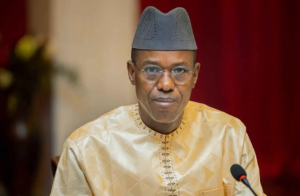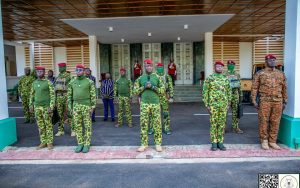Burkina Faso’s agricultural evolution: Transformations under President Ibrahim Traoré

Agriculture remains the backbone of Burkina Faso’s economy, employing a large portion of the population and significantly contributing to the country’s GDP.
However, for many years, Burkinabe farmers have struggled with numerous challenges that hinder their ability to produce efficiently and sustain their livelihoods.
These challenges include land degradation, erosion, desertification, and limited or non-existent access to agricultural inputs.
Since assuming office, President Ibrahim Traoré has implemented several initiatives to revitalize agriculture and support Burkinabe farmers.
On May 6th, President Traoré distributed agricultural equipment and inputs to local producers.
The government provided 400 tractors, 239 power tillers, and 710 water pumps to boost agricultural production.
Additionally, farmers received 10,000 tons of fish feed, 68,964 tons of fertilizer, 10,000 liters of pesticides, 18,000 tons of vegetable seeds, 2,300 tons of forage seeds, and 10,000 tons of concentrated animal feed.
These tractors and power tillers are available to farmers for free according to a well-structured schedule.
One notable achievement under President Traoré’s leadership is the introduction of wheat cultivation in Burkina Faso, aiming to reduce the country’s reliance on wheat imports.
In 2022, Burkina Faso imported over 212,000 tons of wheat worth more than $95 million.
This year, with an experimental cultivation on 125 hectares, the country expects to harvest 250 tons by the end of the year.
Under President Traoré, Burkina Faso’s agriculture has undergone significant transformations.
His numerous initiatives focused on sustainability, innovation, and direct support to farmers have addressed the structural challenges of the agricultural sector and improved the living conditions of farmers.
These efforts highlight a commitment to making agriculture a driving force for the country’s development and food security.
Cedric KABORE











